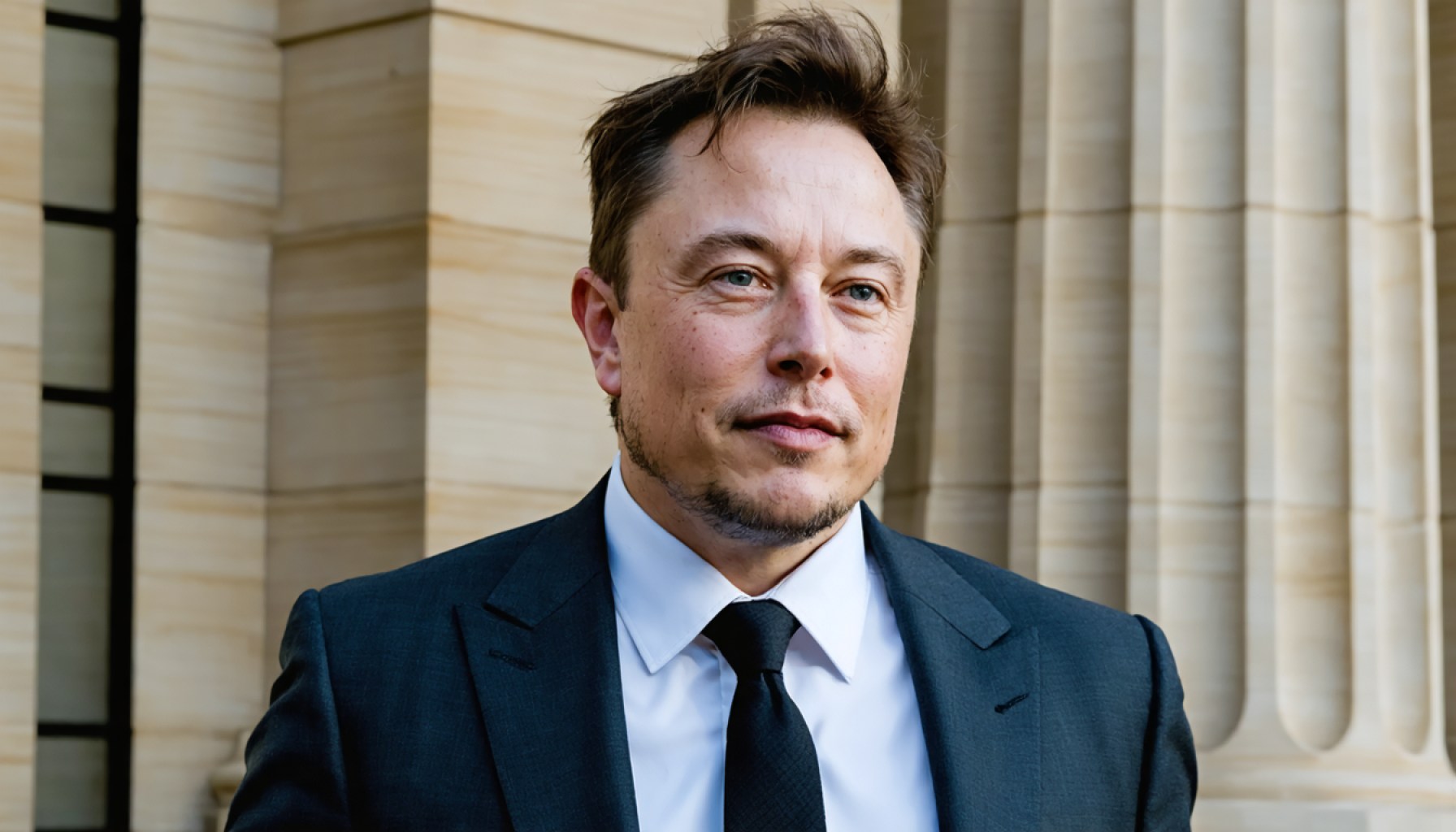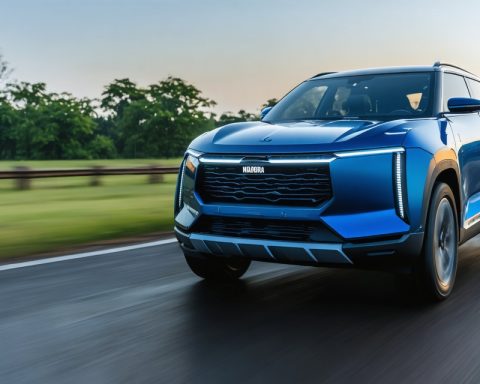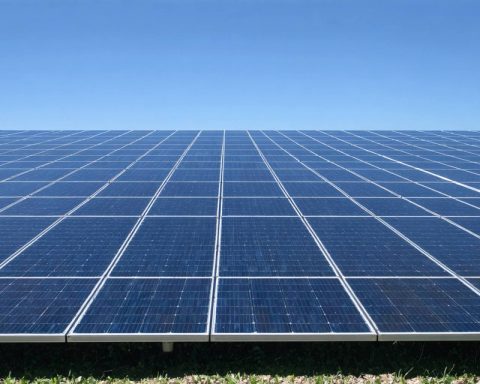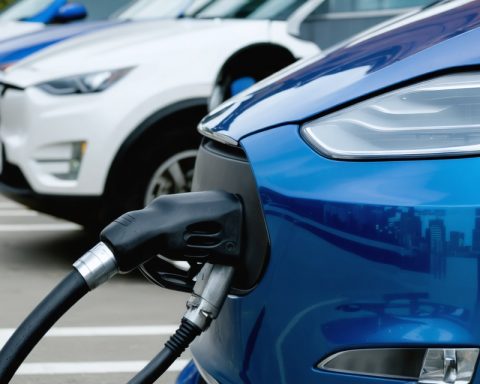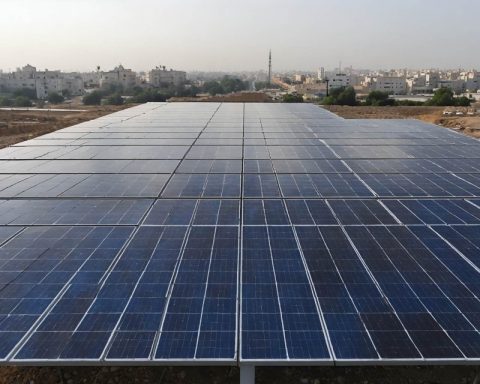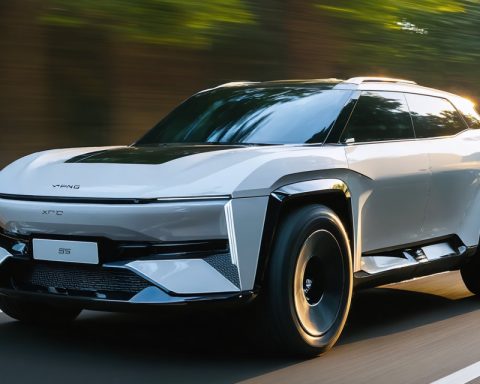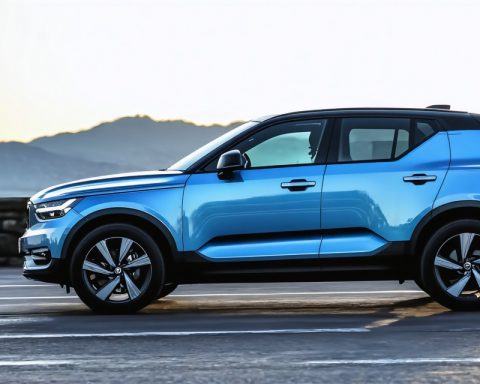- Elon Musk invests millions in Wisconsin’s political landscape, challenging a law that restricts Tesla’s ability to open direct-sales dealerships.
- Current regulations protect independent auto dealerships, yet they do not accommodate Tesla’s direct sales model and innovations in electric vehicles.
- Tesla’s lawsuit targets these laws, aiming for judicial intervention after failing to gain legislative support.
- Musk supports conservative candidate Brad Schimel in the state Supreme Court race, potentially influencing outcomes that favor Tesla’s interests.
- The high-stakes legal and political battle highlights a broader clash between commerce, technology, and regulatory frameworks.
- The outcome could impact other issues such as abortion rights, union power, and congressional redistricting.
- Musk’s actions in Wisconsin illustrate how corporate influence attempts to reshape policies, emphasizing both opportunity and risk.
A high-stakes drama unfolds in the heart of America’s dairyland, as electric vehicle titan Elon Musk wagers millions in a strategic power play focused on Wisconsin’s Supreme Court. Nestled amid the state’s rustic charm, a legal conflict simmers, blending innovation, tradition, and political intrigue. Tesla, Musk’s electric behemoth, is locked in a fierce battle against a decades-old law that bars it from opening direct-sales dealerships in Wisconsin.
Existing laws crafted in the early 20th century shield independent auto dealerships from the voracious dominance of car manufacturers, not envisioning today’s world of direct sales and electric vehicles. Tesla’s sleek, innovative cars—synonymous with cutting-edge technology and eco-friendly luxury—are shackled by regulations that compel buyers to make pilgrimage either to neighboring states or rely on less-direct delivery options.
Unable to sway legislative goodwill beyond rhetorical zeal, Tesla now seeks judicial redress. This quiet, almost clandestine maneuver has loud echoes, marked by Elon Musk’s pouring of millions into Wisconsin’s political landscape. Just weeks after Tesla’s suit hit the courts, Musk plunged into the whirl of a contentious Supreme Court race, where Brad Schimel, a conservative candidate, stands at a potential gateway to paving Tesla’s smooth legal path.
Musk’s gambit isn’t just about business logistics; it’s brilliantly timed within an electoral arena where partisan alliances forge futures both local and national. The deluge of over $20 million in Musk’s and his allies’ contributions to support Schimel is a clarion call in a supremely expensive judicial contest—posing a subtle but potent challenge to the state’s judicial impartiality.
The court battle, pending before Milwaukee County judges, has no scheduled hearings yet, serving as a silent backdrop to a bustling political and ideological marketplace. Scholars, analysts, and concerned citizens watch—some aghast, some with curious anticipation—as the court’s ideological balance hangs in limbo, risking a conservative shift could ripple out to unpredictable lengths: abortion debates, union rights, and congressional redistricting.
For Musk and Tesla, the showdown is not merely a legal tangle over dealership rights; it exemplifies a 21st-century clash at the intersections of commerce, technology, and politics. In this battleground state, which gave a nod to President Biden, and later to Trump, the stakes transcend mere judicial rulings—they beam like Tesla’s distinctive headlights, illuminating the broader American narrative of capitalism, regulatory frameworks, and democratic integrity.
Beyond the glimmer of courtroom and campaign theatrics lies the crux of the matter: a reminder that the power to influence policy is as mighty as any corporate empire—and fraught with enduring implications. Whether this unfolds into a triumph of entrepreneurial destiny or transforms into a cautionary tale, Musk’s engagement in Wisconsin sets a dramatic stage where economic dreams and political realities collide in compelling fashion.
Elon Musk Versus the Status Quo: The Battle for Wisconsin’s Legal Landscape
The unfolding drama between Tesla, spearheaded by Elon Musk, and the state of Wisconsin has captured attention with implications that reach far beyond just selling cars. Here’s a deeper dive into the situation, beyond what the initial source provided, focusing on Tesla’s broader impact, the legal landscape, and what this might mean for the future.
The Background: Laws and Historical Context
The restrictions Tesla faces are rooted in laws dating back to the early 20th century, designed to protect small, independent dealerships by prohibiting manufacturers from selling vehicles directly to consumers. These laws were instituted in an era where manufacturers could potentially wield monopolistic power over local dealers, leaving them vulnerable.
Why Wisconsin?
Tesla’s focus on Wisconsin isn’t arbitrary. The state represents a microcosm of broader national debates: balancing innovation with regulatory frameworks meant to protect smaller players from potential corporate overreach.
Legal Challenges and the Supreme Court
Tesla’s lawsuit in Wisconsin underscores a push against these outdated dealership laws. While waiting for hearing dates, Musk’s financial influence in the Supreme Court race signifies his strategic stance to potentially sway legal interpretations favoring Tesla.
Implications Beyond Tesla
1. Influence on Law Reform: Should Tesla succeed, it could set a precedent encouraging other states to revisit and possibly reform similar laws, impacting the auto industry nationwide.
2. Economic and Employment Considerations: A legal victory could pave the way for new Tesla dealerships in Wisconsin, creating jobs and boosting the local economy, while challenging traditional dealership models.
3. Broader Political Repercussions: The outcome may affect other significant legal battles in the state, influencing decisions on issues like union rights and gerrymandering.
Real-World Use Cases
– Direct Sales Model: The court’s decision could popularize direct manufacturer-to-consumer sales models, cutting down costs for consumers and potentially offering more competitive pricing.
– Electric Vehicles (EV) Adoption: A favorable result for Tesla could accelerate EV adoption, aligning with environmental targets for reducing carbon emissions.
Reviews & Comparisons
In comparison to other states, Wisconsin’s laws represent one of the more stringent barriers to Tesla’s business model. States like California have embraced the EV company, fostering cooperation over legal contention.
Market Forecasts & Industry Trends
The automotive industry is leaning towards more direct sales models, especially for EVs. A change in Wisconsin could motivate other manufacturers, especially emerging EV companies, to push for the same legal flexibility, thereby shifting the industry’s landscape.
Pros & Cons Overview
Pros:
– Streamlined purchasing experience for consumers.
– Potential economic boost through new dealership setups.
– Increased competition may lead to better pricing and options.
Cons:
– Possible adverse effects on traditional dealerships and local economies reliant on them.
– Legal battles may result in polarizing political landscapes.
Controversies & Limitations
Critics argue that Musk’s significant financial involvement in the political process could undermine judicial impartiality—a contentious point in ensuring that economic powers do not unduly sway democratic processes.
Actionable Recommendations
– Wisconsin Residents: Stay informed about the ongoing legal proceedings and their potential impact on local economies and jobs.
– Potential EV Buyers: Monitor legal outcomes in Wisconsin and other states as these could affect vehicle purchase options and pricing.
– Investors: Watch Tesla’s legal strategies and outcomes as pivotal indicators of future policy shifts impacting the EV market.
Conclusion
Elon Musk’s stakes in Wisconsin are about reshaping the intersection of commerce, law, and technology. As the battle continues, its ramifications on the future of vehicle sales, the environment, and legal precedents remain crucial. For more insights, visit Tesla‘s latest updates and developments.
